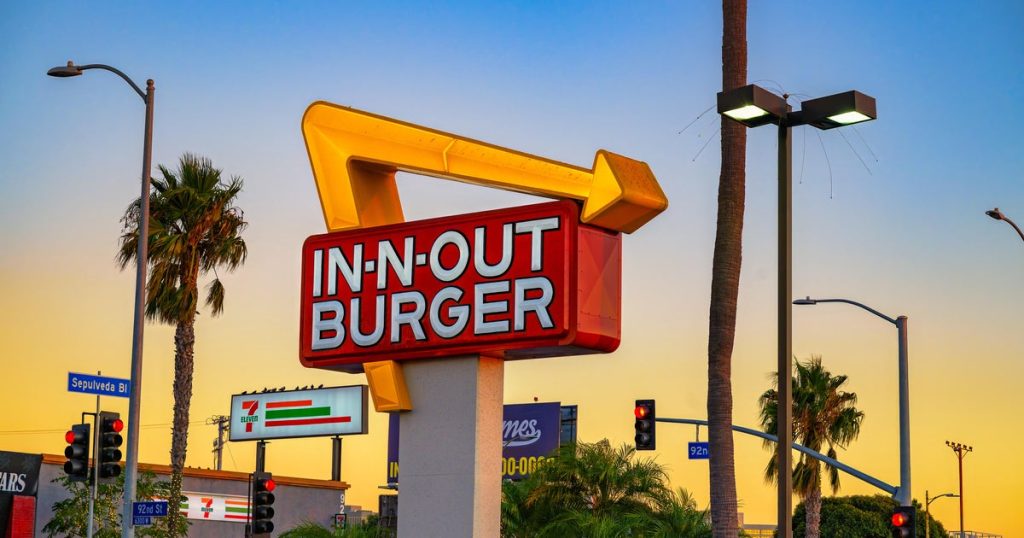In-N-Out Burger has filed a lawsuit against a well-known YouTuber, Bryan Arnett, claiming he impersonated an employee and created misleading videos that could harm the fast-food chain’s reputation. The lawsuit, initiated in a central California district court, accuses Arnett of trademark infringement and business defamation. Specifically, In-N-Out seeks to prohibit him from entering their establishments and demands he remove the video content related to the brand.
| Article Subheadings |
|---|
| 1) Allegations Against Bryan Arnett |
| 2) In-N-Out’s Response to Trademark Infringement |
| 3) Background on In-N-Out Burger |
| 4) The Impact of Social Media on Businesses |
| 5) Legal Implications and Future Considerations |
Allegations Against Bryan Arnett
The lawsuit against Bryan Arnett centers on the claim that he wore a fake In-N-Out employee uniform to deceive customers. This impersonation, according to the complaint filed by In-N-Out, involved making “lewd, derogatory and profane remarks” while interacting with patrons. Such actions not only misrepresented In-N-Out’s brand but also potentially jeopardized the trust and integrity that the restaurant has cultivated over decades.
Among the most severe allegations is Arnett’s suggestion that the fast-food chain’s food items included cockroaches and condoms. He further claimed that employees had a habit of putting their feet in the lettuce served to customers. This kind of misinformation could lead to a significant decline in business, as patrons might reconsider their dining choices based on such damaging rumors.
In-N-Out’s Response to Trademark Infringement
In-N-Out’s legal team has responded by asserting rights to protect their brand against unauthorized use and deterioration. The chain is pursuing multiple avenues in this case, including seeking damages and profits that Arnett may have earned from these videos. Furthermore, In-N-Out aims to issue a restraining order requiring Arnett to take down the incriminating media and to cease any activities that might involve impersonating the brand in the future.
The lawsuit emphasizes that Arnett’s actions could mislead customers into thinking that his vulgar portrayals were endorsed by In-N-Out itself, a serious breach of brand integrity. Such measures undertaken by In-N-Out demonstrate the company’s commitment to maintaining its reputation within the competitive fast-food market.
Background on In-N-Out Burger
Founded in 1948, In-N-Out Burger has developed a robust brand presence that is synonymous with quality and fast service. The company is headquartered in Irvine, California, and operates branches across California, Nevada, Arizona, Utah, and Texas. Known for its uniquely simple menu and fresh ingredients, In-N-Out remains a beloved choice for burger enthusiasts.
The brand’s strong commitment to customer service and product quality has historically fostered a devoted customer base. However, such loyalty can be vulnerable to outside influences, especially in the age of social media where content can spread rapidly, potentially compromising a brand’s image and customer trust.
The Impact of Social Media on Businesses
The rise of platforms like YouTube has added layers of complexity to brand management. For brands like In-N-Out, a single viral video can alter public perception considerably. The fact that Arnett’s pranks garnered attention reflects a broader trend where misuse of social media can lead directly to damaging consequences for companies.
Marketers and brand advocates must constantly strategize on how to mitigate such risks while also harnessing the extensive reach that social media platforms afford. In-N-Out’s response to this incident showcases a responsible approach to handling potential reputational crises, focusing on legal measures while maintaining their commitment to customer service.
Legal Implications and Future Considerations
As this lawsuit progresses, the outcomes could set significant precedents for other companies dealing with similar situations. Legal experts suggest that brands need to remain vigilant against impersonation and misinformation while also engaging with audiences to ensure clarity and maintain trust. For In-N-Out, successfully navigating this lawsuit may fortify its legal framework against future issues.
Moreover, the situation highlights the importance of brands being proactive rather than reactive. Social media can be both a tool and a threat; awareness of these dynamics is essential for long-term brand sustainability and positioning. Other brands may take cues from In-N-Out’s handling of this issue to shape their responses in an increasingly digital world.
| No. | Key Points |
|---|---|
| 1 | In-N-Out Burger is suing Bryan Arnett for impersonating an employee and making defamatory remarks. |
| 2 | The lawsuit alleges trademark infringement and seeks to ban Arnett from In-N-Out establishments. |
| 3 | Arnett made damaging claims about the chain’s food, affecting its reputation. |
| 4 | The case underscores the impact of social media on brand integrity. |
| 5 | In-N-Out’s response may influence how companies protect their trademarks in the digital age. |
Summary
In-N-Out Burger’s decision to take legal action against Bryan Arnett reflects broader concerns regarding brand protection in an age dominated by social media and viral content. The case emphasizes the need for companies to actively safeguard their reputations while navigating new risks associated with the digital landscape. As this situation develops, its outcomes could serve as essential lessons for businesses in managing their image and dealing with impersonation in an increasingly connected world.
Frequently Asked Questions
Question: What are the key allegations against Bryan Arnett?
The primary allegations include impersonating an In-N-Out employee and making false and derogatory claims about the restaurant’s food, which could damage the brand’s reputation.
Question: What specific actions is In-N-Out Burger taking in this lawsuit?
In-N-Out is suing for trademark infringement, seeking damages and a ban on Arnett from their establishments, as well as requiring him to remove any related online content.
Question: How has social media impacted the situation?
The events underscore the risk social media poses to brands, as false information can spread quickly, potentially harming their reputation, necessitating proactive measures from companies.


